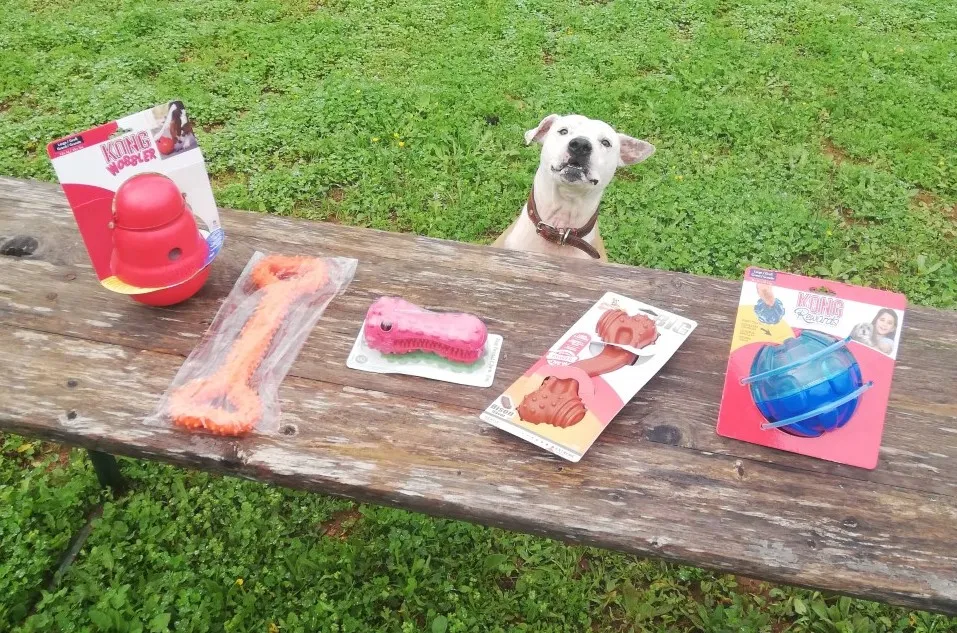
As devoted dog owners, we understand the challenge of finding toys that can withstand the enthusiastic jaws of our canine companions. For those with dogs who possess a particularly strong chewing instinct, the quest for durable, engaging, and safe toys can feel never-ending. At Dog Care Story, we’ve dedicated ourselves to rigorous testing, enlisting the help of our own furry friends and a network of shelter dogs to identify the best options on the market. This article delves into our findings, focusing on the “top-rated dog toys for aggressive chewers” to help you make informed decisions.
Understanding the Aggressive Chewer
Aggressive chewing is a natural behavior for dogs, serving various purposes from teething in puppies to stress relief and mental stimulation in adult dogs. However, for owners of powerful chewers, it often means a constant cycle of replacing destroyed toys. Identifying toys that are not only tough but also safe and beneficial for your dog’s dental health is paramount. We’ve evaluated several popular options, putting them through their paces with dogs of varying breeds and chewing intensities.
Our Testing Methodology: A Canine Council’s Verdict
At Dog Care Story, we believe in real-world testing. Our team, along with the resident experts at Benafim Dog Shelter, put five highly-touted “indestructible” dog toys to the ultimate test. These toys were subjected to hours of chewing, tossing, burying, and general canine play. The feedback comes directly from our canine testers, including Nero, Max, Maya, Black Nero, Jean, and Pebbles, ensuring honest and reliable insights. We aimed to find toys that not only survive but also keep our dogs engaged and happy.
Top Dog Toys for Aggressive Chewers: Our Reviewed Picks
Nylabone Extreme Tough Dog Chew Toy
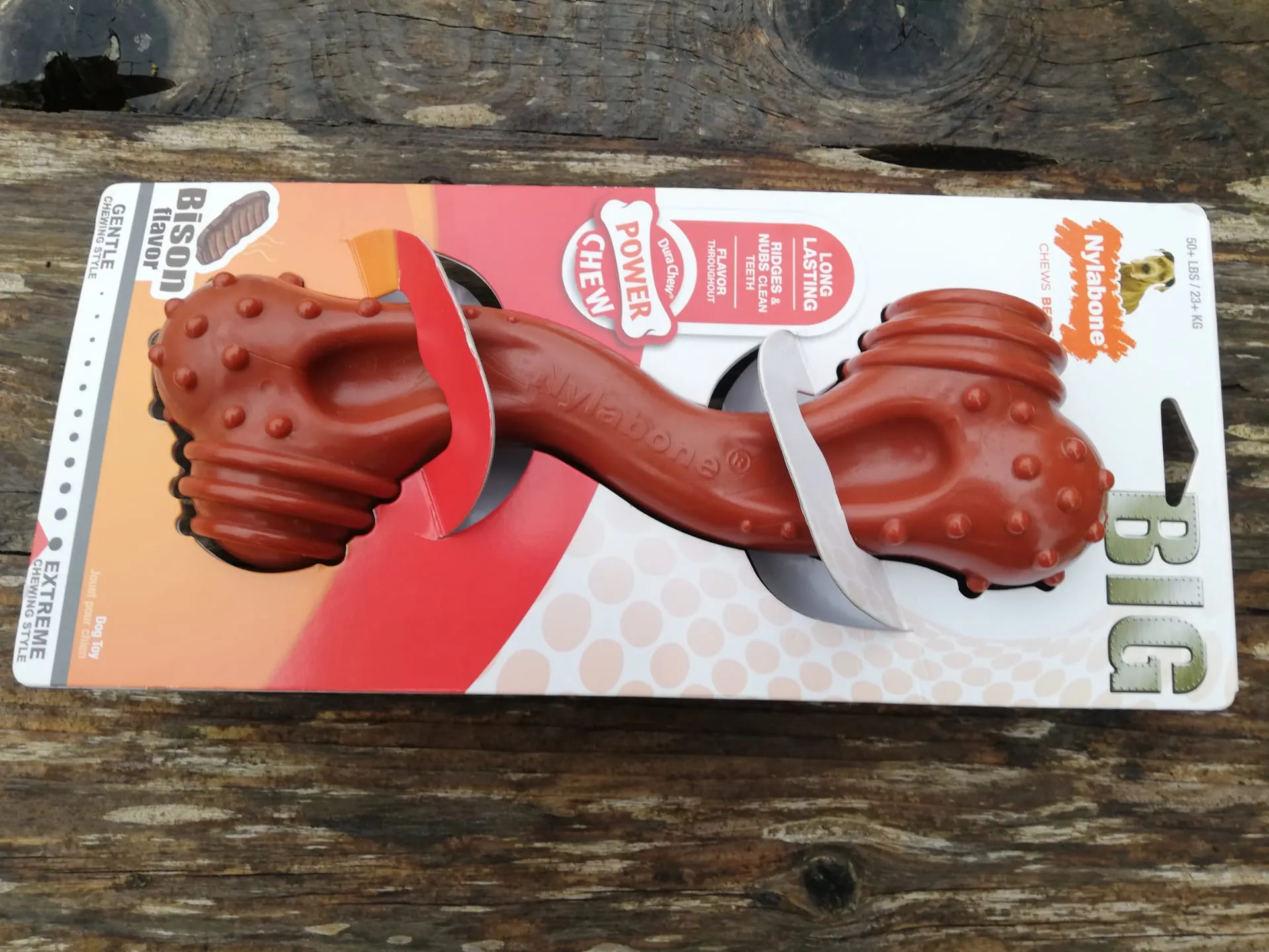
This Bison-flavored XXL Extreme Tough Dog Chew Toy is specifically designed for powerful chewers weighing over 23kg. Nero, a 9-year-old Pitt Bull, spent considerable time with this toy, and it barely showed any signs of wear. Its large size is manageable for dogs, and the curved design makes it easy for them to grip with their paws.
Maya, a rescued dog who was initially timid, also took an immediate liking to the Nylabone. The toy’s palatable flavor encourages chewing, and its textured surface aids in cleaning teeth and gums, promoting good dental hygiene. Unlike some other toys, the Nylabone doesn’t lose its flavor and remains odor-free, a significant plus for owners who dislike messy toys.
Black Nero, known for his exceptionally strong chewing habits, found this Nylabone to be a true match. Even when anxious, which often leads him to chew through robust materials, the Nylabone held up remarkably well, with only the faintest of tooth marks after extensive use. This durability, coupled with the dogs’ enjoyment, makes it a standout option.
alt=”Nero, a Pitt Bull, enthusiastically chewing on a Bison-flavored Nylabone Extreme Tough Dog Chew Toy.”
The Details:
- Flavor: Bison (also available in chicken and turkey)
- Dimensions: 30.48 x 13.97 x 5.08 cm
- Weight: 485 grams
- Recommended for: Dogs over 23 kg
Summary: The Nylabone Extreme Tough Dog Chew Toy is highly recommended by our canine testers for its exceptional durability and appeal to dogs that love to chew. It’s a fantastic choice for bored dogs needing a stimulating and long-lasting chew.
KONG Rewards Ball
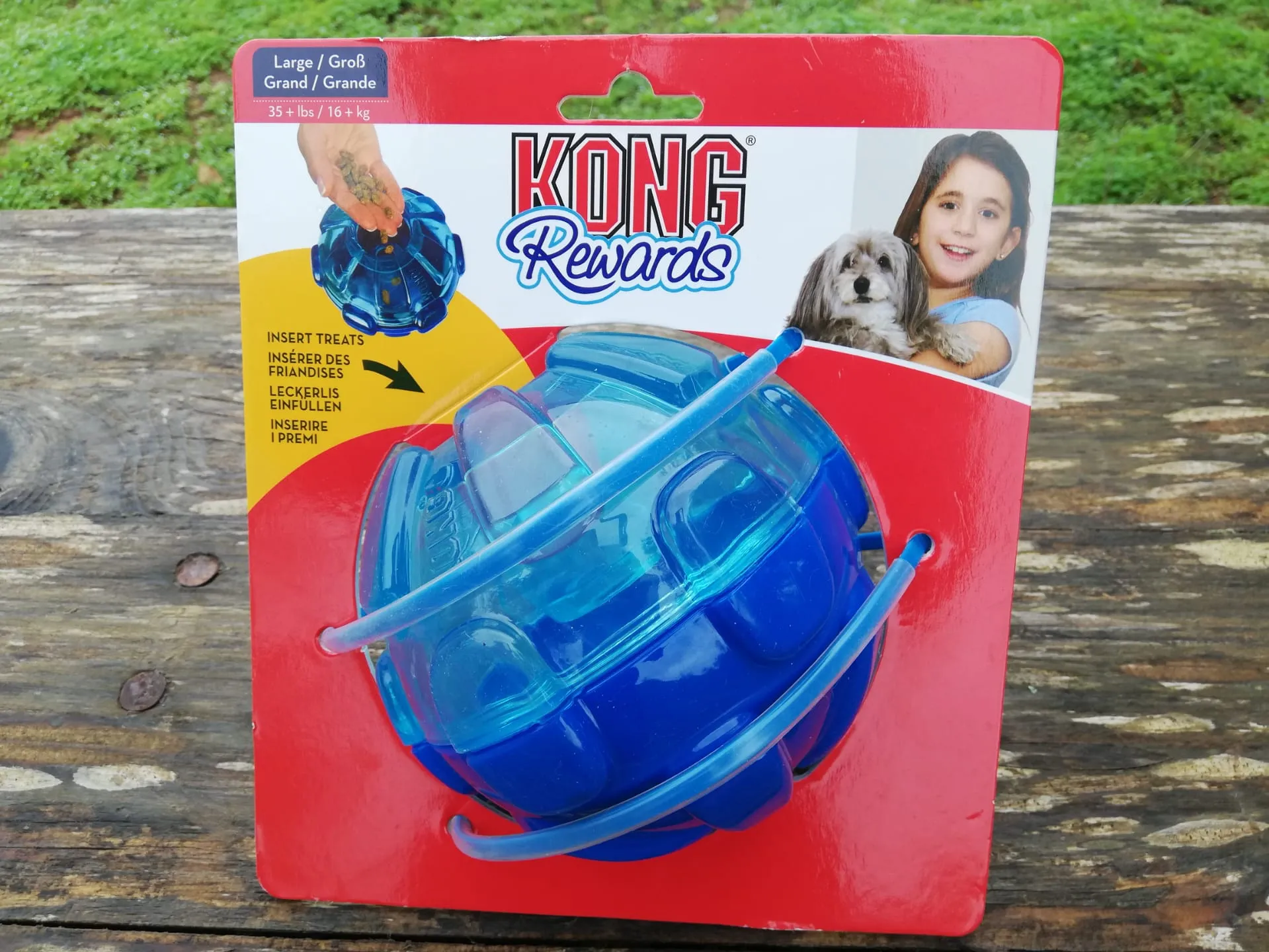
The KONG Rewards Ball offers an engaging experience by combining play with a treat-dispensing feature. While it didn’t initially capture the attention of all dogs as strongly as some other toys, its appeal grew significantly. The design makes it easy for humans to fill with treats, and dogs don’t have to exert excessive effort to access them.
Our testers found the soft, bouncy rubber side of the ball to be particularly enjoyable. Jean, for instance, absolutely loved this toy, spending hours chewing it before burying it. This toy provides a dual benefit: it keeps dogs entertained with its treat-dispensing capability and offers a satisfying chewing experience. Despite intense chewing, no tooth marks were evident, highlighting its robust construction.
alt=”Jean, a dog, happily playing with a KONG Rewards Ball, showcasing its treat-dispensing feature.”
The Details:
- Dimensions: 12.7 x 12.7 x 12.07 cm
- Weight: 417 Grams
- Recommended for: Dogs of 16 kg and above
Summary: The KONG Rewards Ball is a well-rounded toy that merges play and reward. Its durable construction can withstand significant chewing, bouncing, and interactive play, making it a great option for dogs who enjoy both physical activity and mental challenges.
CyunCmay Indestructible Dog Toy XL Bone
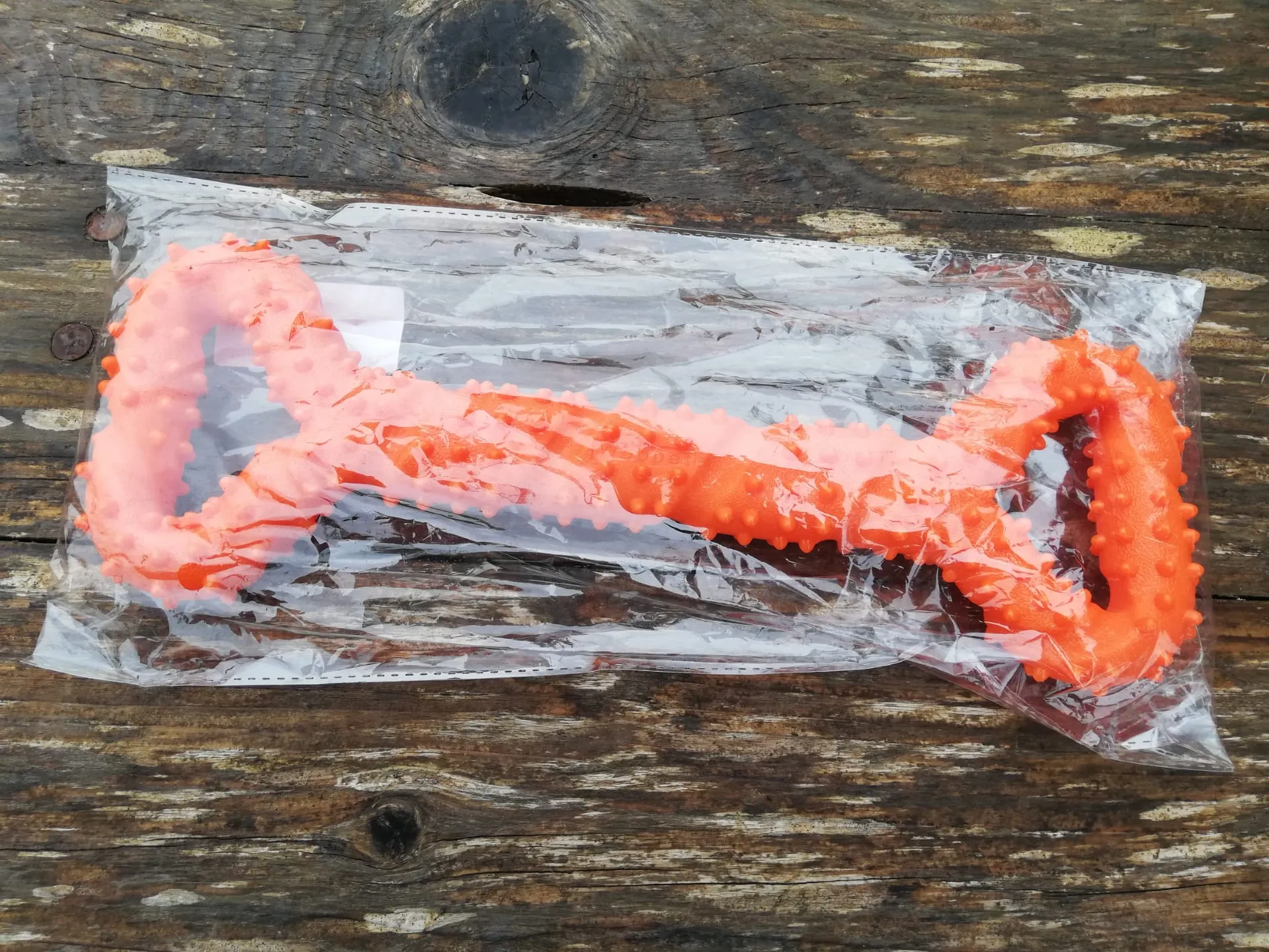
This XL bone toy from CyunCmay initially generated a lot of excitement among our canine testers due to its soft, rubbery, and pliable texture. It features handles at each end, making it suitable for games of tug-of-war. However, its durability was short-lived when confronted by Black Nero’s powerful jaws.
Despite being advertised as strong and durable, the toy showed significant signs of damage, including deep teeth marks and nearly splitting in half, within just 30 minutes of testing. While it provided momentary fun, especially for fetching and tugging, it proved to be unsuitable for aggressive chewers who intend to gnaw on it for extended periods.
alt=”Black Nero, a powerful chewer, testing the CyunCmay Indestructible Dog Toy XL Bone, which shows signs of damage.”
The Details:
- Material: TPR environmentally friendly material
- Dimensions: 32.9 x 12.2 x 3.8 cm
- Weight: 330 Grams
- Features: Surface designed to help clean teeth and control plaque and tartar.
Summary: While the CyunCmay XL Bone is fun for retrieval and short play sessions, it is not an ideal choice for aggressive chewers. Its soft material is easily compromised, leading to rapid destruction.
HETOO Indestructible Squeaky Dental Care Dog Toy
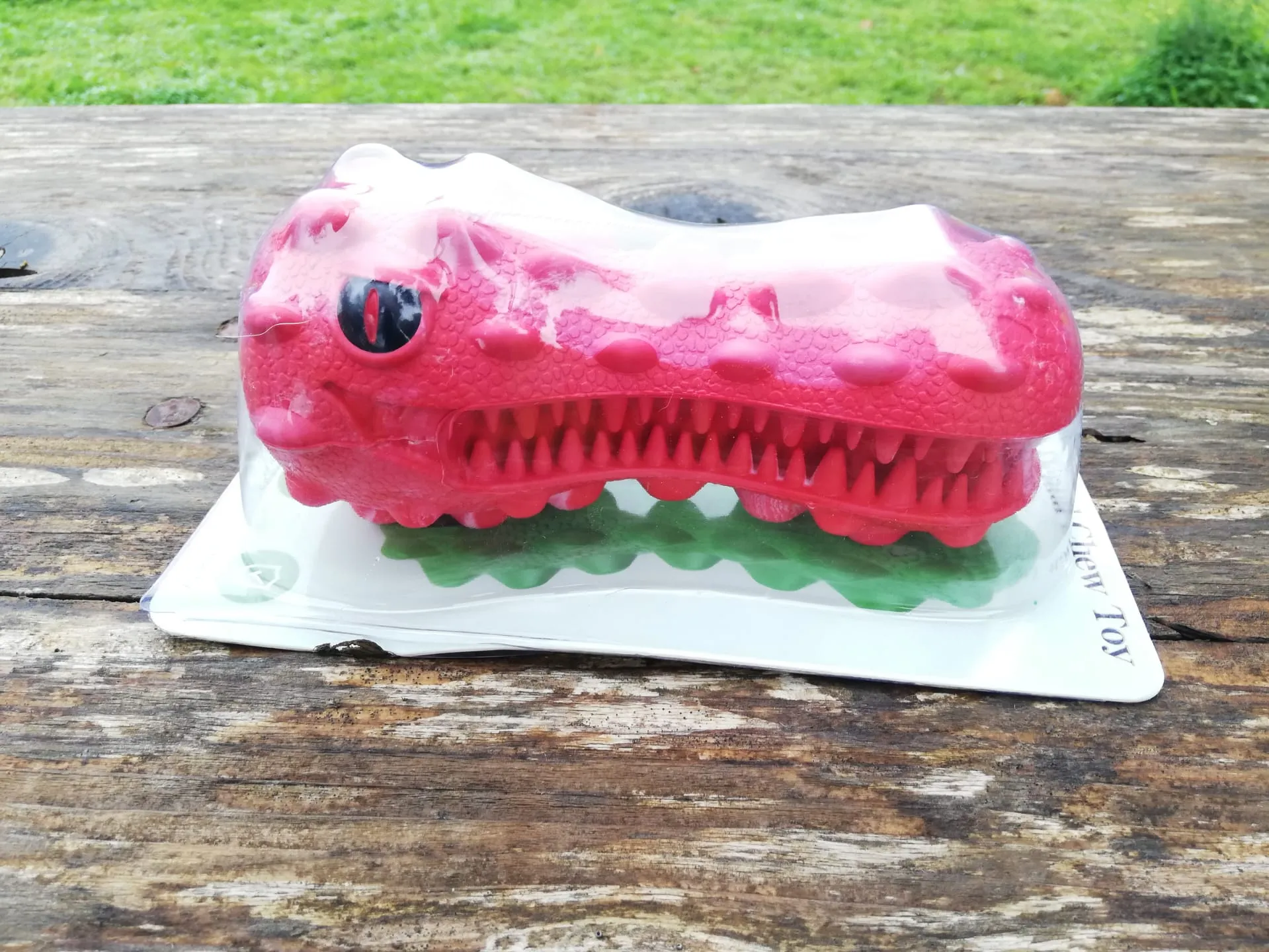
The HETOO Indestructible Squeaky Dental Care Dog Toy, made from natural rubber, is primarily designed for dental cleaning. However, it failed to capture the sustained interest of our dog testers. Even with the addition of peanut butter in its grooves to encourage chewing, the dogs showed only fleeting engagement.
Maya, one of the testers, was initially startled by the squeaking sound of the toy. While she showed a brief interest, she soon abandoned it. Black Nero and Maya were the only dogs to exhibit any curiosity towards this toy, but their attention spans were very limited. The squeaking feature, intended to be stimulating, proved to be more of a nuisance than an attraction for most of our canine reviewers.
alt=”Maya, a rescued dog, cautiously inspecting the HETOO Indestructible Squeaky Dental Care Dog Toy.”
The Details:
- Material: Natural rubber
- Dimensions: 12.7 x 12.7 x 12.07 cm
- Weight: 417 Grams
Summary: The HETOO toy did not impress our dogs. Its lack of engaging features and limited durability for chewing make it a less suitable option for aggressive chewers seeking long-lasting entertainment.
KONG Wobbler Interactive Treat Dispensing Dog Toy
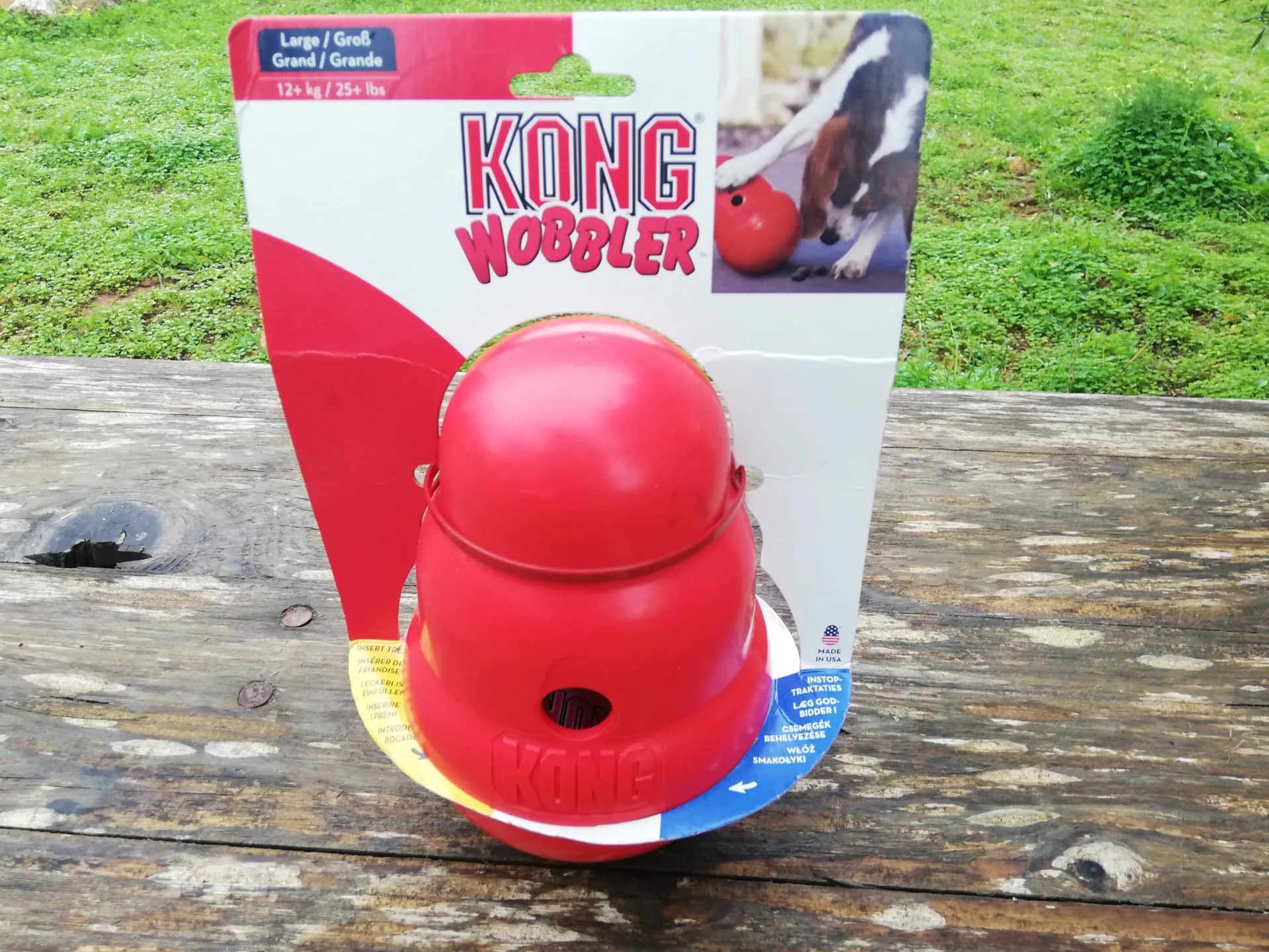
The KONG Wobbler, made from a hard plastic polymer, presents a unique treat-dispensing challenge for dogs. Its considerable size initially puzzled some of our testers, including Kilo, who seemed perplexed by this unusual object. Initially, the dogs struggled to access the treats, but upon understanding its function and ensuring it was used on a smooth surface, it became a highly engaging toy.
A key factor for success with the KONG Wobbler is using appropriate-sized treats that fit through the dispensing hole. Its large size makes it difficult for dogs to pick up and carry, which is a positive attribute as it reduces the likelihood of them getting their teeth stuck into it for destructive chewing. Our dog experts concluded that this toy is indeed durable and offers a great interactive experience.
alt=”Pebbles, a dog, interacting with the KONG Wobbler Interactive Treat Dispensing Dog Toy on a smooth surface.”
The Details:
- Material: Plastic polymer
- Dimensions: Diameter 13 x 19 cm
- Weight: 485 grams
- Recommended for: Dogs of 12 kg plus
- Capacity: Maximum 250 grams of treats
Summary: Once understood and used correctly, the KONG Wobbler is an excellent interactive toy for aggressive chewers. Its design promotes mental stimulation through treat dispensing and its robust build ensures it can withstand considerable interaction.
Final Verdict: Top-Rated Dog Toys for Aggressive Chewers
After extensive testing by our discerning canine panel, the following toys emerged as the top contenders for aggressive chewers:
Best for Chewers: Nylabone Extreme Tough Dog Chew Toy – Its unparalleled durability and satisfying chew texture make it a clear winner for dogs who love to gnaw.
Best for Players: KONG Rewards Ball – This toy expertly combines the joy of play with the reward of treats, keeping dogs engaged for extended periods.
Great Interactive Toy: KONG Wobbler – Provides excellent mental stimulation and a durable play experience, especially when used on appropriate surfaces.
We’ve compiled a quick reference table to help you choose the perfect toy for your canine companion:
| Brand & Item | Features | Flavored | Material | More Details |
|---|---|---|---|---|
| Nylabone Extreme Tough Dog Chew Toy, Monster Bison Bone, XXL | Extremely tough, cleans teeth, perfect for chewers | Yes | Tough, durable nylon | Click For Price |
| KONG – Rewards Ball – Ultra Durable Interactive Treat Dispensing Dog Toy | Dispenses treats, great for playful dogs | – | Long lasting Kong rubber | Click For Price |
| KONG Wobbler – Interactive Dog Toy for Treat Dispensing – Dog Slow Feeder | Can be stuffed, dishwasher proof | – | Long lasting Kong rubber | Click For Price |
When selecting toys for aggressive chewers, always prioritize safety, durability, and your dog’s individual play style. Consider factors like material, size, and the potential for splintering or choking hazards. For more insights into keeping your dog happy and healthy, explore our other articles on best dog toys for dogs who destroy toys and chew toys that dogs can eat.
